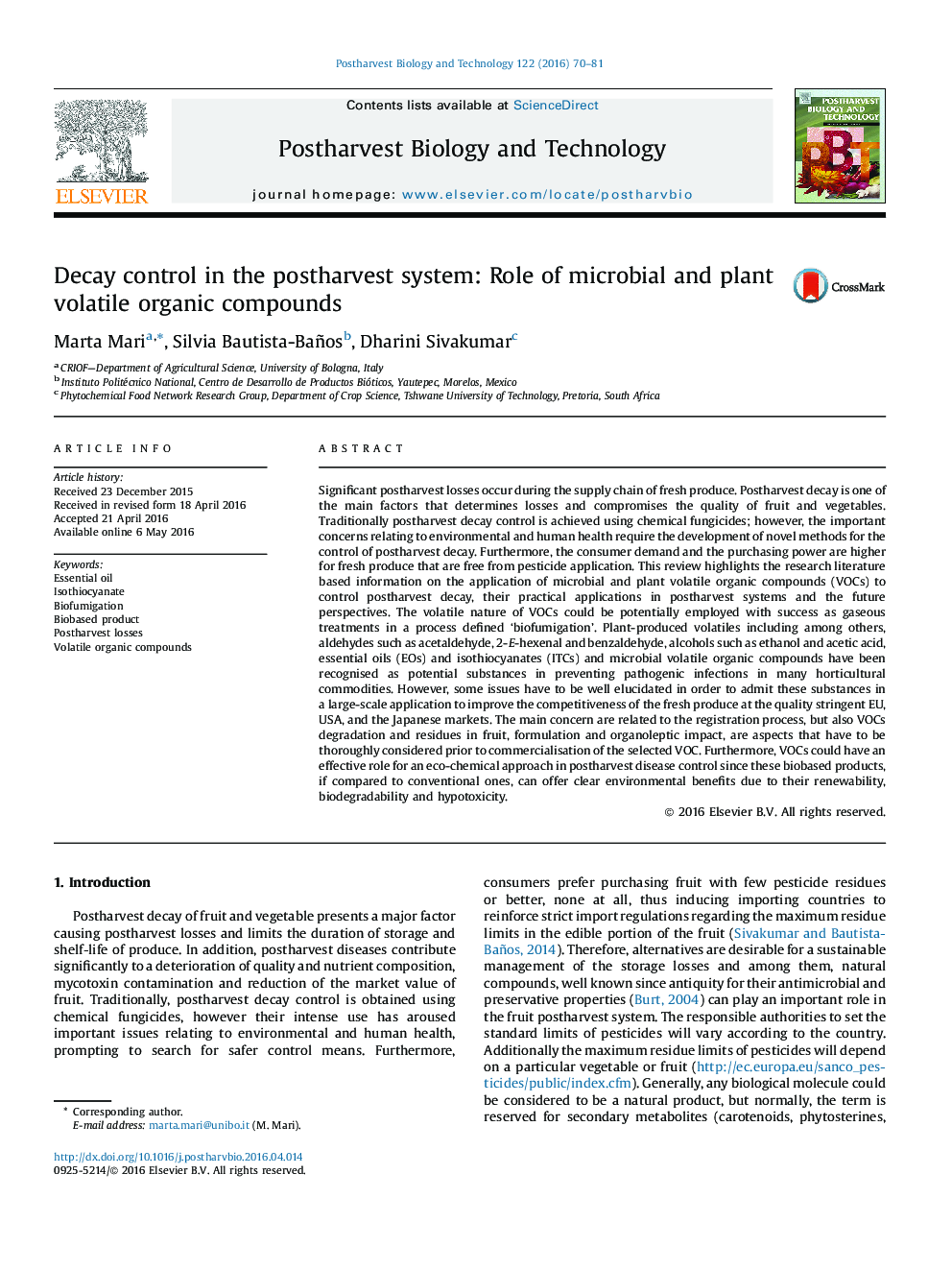| کد مقاله | کد نشریه | سال انتشار | مقاله انگلیسی | نسخه تمام متن |
|---|---|---|---|---|
| 4517713 | 1624972 | 2016 | 12 صفحه PDF | دانلود رایگان |
• The VOCs could be employed as gaseous treatments in a process defined ‘biofumigation’.
• These biobased products are an eco-chemical approach in postharvest disease control.
• The VOCs can be applied as MAP, incorporated into edible films or in active packaging.
• The VOCs play a key role against postharvest pathogens.
Significant postharvest losses occur during the supply chain of fresh produce. Postharvest decay is one of the main factors that determines losses and compromises the quality of fruit and vegetables. Traditionally postharvest decay control is achieved using chemical fungicides; however, the important concerns relating to environmental and human health require the development of novel methods for the control of postharvest decay. Furthermore, the consumer demand and the purchasing power are higher for fresh produce that are free from pesticide application. This review highlights the research literature based information on the application of microbial and plant volatile organic compounds (VOCs) to control postharvest decay, their practical applications in postharvest systems and the future perspectives. The volatile nature of VOCs could be potentially employed with success as gaseous treatments in a process defined ‘biofumigation’. Plant-produced volatiles including among others, aldehydes such as acetaldehyde, 2-E-hexenal and benzaldehyde, alcohols such as ethanol and acetic acid, essential oils (EOs) and isothiocyanates (ITCs) and microbial volatile organic compounds have been recognised as potential substances in preventing pathogenic infections in many horticultural commodities. However, some issues have to be well elucidated in order to admit these substances in a large-scale application to improve the competitiveness of the fresh produce at the quality stringent EU, USA, and the Japanese markets. The main concern are related to the registration process, but also VOCs degradation and residues in fruit, formulation and organoleptic impact, are aspects that have to be thoroughly considered prior to commercialisation of the selected VOC. Furthermore, VOCs could have an effective role for an eco-chemical approach in postharvest disease control since these biobased products, if compared to conventional ones, can offer clear environmental benefits due to their renewability, biodegradability and hypotoxicity.
Journal: Postharvest Biology and Technology - Volume 122, December 2016, Pages 70–81
